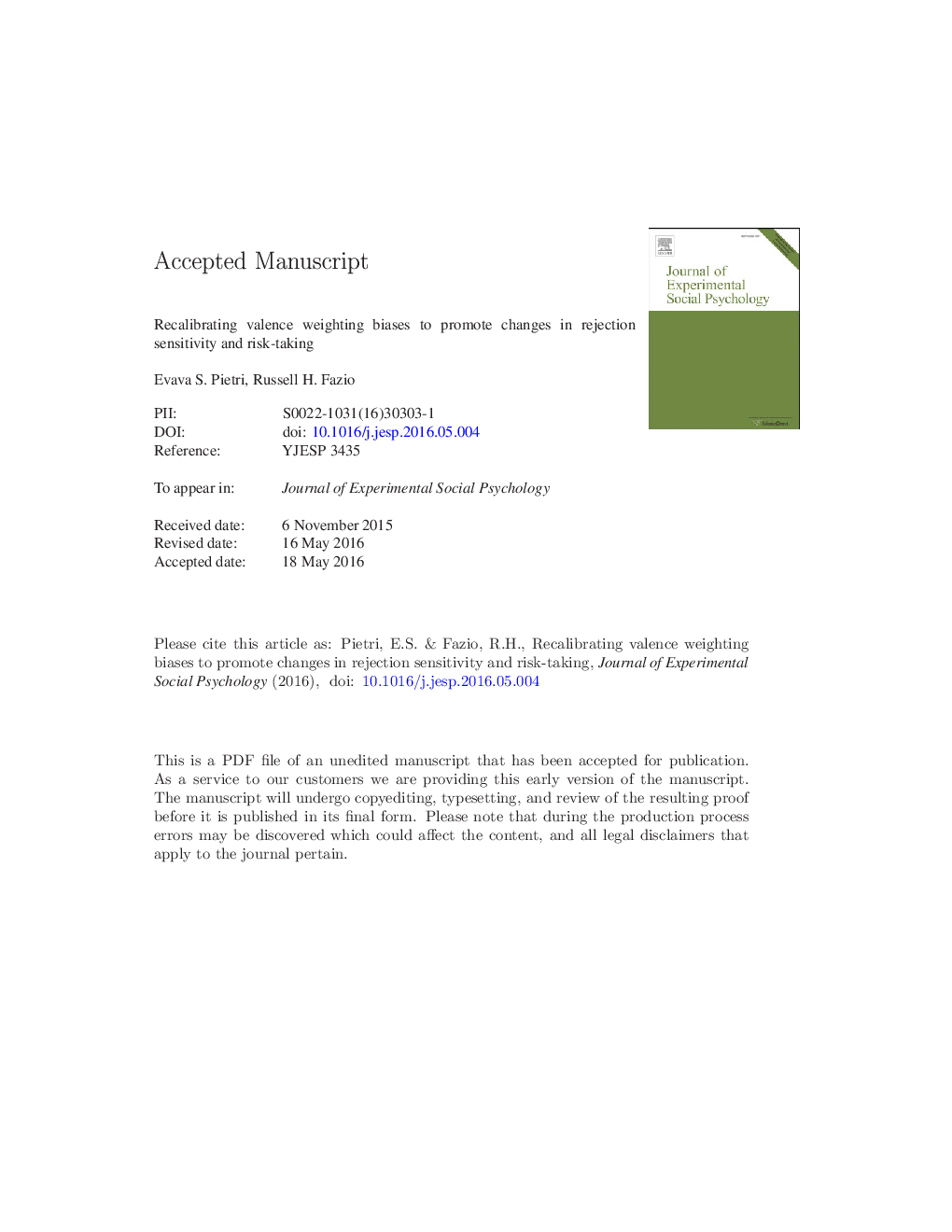| کد مقاله | کد نشریه | سال انتشار | مقاله انگلیسی | نسخه تمام متن |
|---|---|---|---|---|
| 7324348 | 1475855 | 2017 | 41 صفحه PDF | دانلود رایگان |
عنوان انگلیسی مقاله ISI
Recalibrating valence weighting biases to promote changes in rejection sensitivity and risk-taking
ترجمه فارسی عنوان
تعویض مقادیر جبرانی برای ترویج تغییر در حساسیت ردگیری و ریسک پذیری
دانلود مقاله + سفارش ترجمه
دانلود مقاله ISI انگلیسی
رایگان برای ایرانیان
کلمات کلیدی
تعمیم نگرش، ارزش گذاری ارزشمند، اصلاح شناختی، حساسیت رد، خطر،
موضوعات مرتبط
علوم زیستی و بیوفناوری
علم عصب شناسی
علوم اعصاب رفتاری
چکیده انگلیسی
Past research has found that modifying individuals' valence weighting tendencies by recalibrating them to weight positive and negative valence in a more balanced manner influenced a variety of judgments. The current research examines the utility of the recalibration procedure as a targeted intervention. In Experiment 1, we recruited participants high in rejection sensitivity (who are known to exhibit a negative weighting bias) and in Experiment 2, we recruited participants with high risk tendencies (who are known to exhibit a positive weighting bias). In both experiments, participants first played BeanFest, in which they were presented with beans varying in shape and speckles and learned which increased or decreased points. They later classified the game beans, as well as novel ones varying in their resemblance to the known positives or known negatives, as good or bad. In the recalibration condition, participants were told if they classified each bean correctly, thus receiving feedback regarding the appropriate weighting of resemblance to a known positive versus a negative. The controls, who received no feedback, were less accurate at classifying the novel the beans than the recalibration participants. Furthermore, in Experiment 1, the recalibration condition subsequently exhibited lower sensitivity to rejection than the control condition, with this reduction being stronger for individuals initially higher in rejection sensitivity. This effect was still present a week later. In Experiment 2, the recalibration condition reported diminished risk-tendencies, again with this effect being stronger for individuals with initially higher riskiness, and persisting for a week. Even more importantly, recalibration participants also engaged in less risky behavior on a laboratory task.
ناشر
Database: Elsevier - ScienceDirect (ساینس دایرکت)
Journal: Journal of Experimental Social Psychology - Volume 68, January 2017, Pages 1-10
Journal: Journal of Experimental Social Psychology - Volume 68, January 2017, Pages 1-10
نویسندگان
Evava S. Pietri, Russell H. Fazio,
